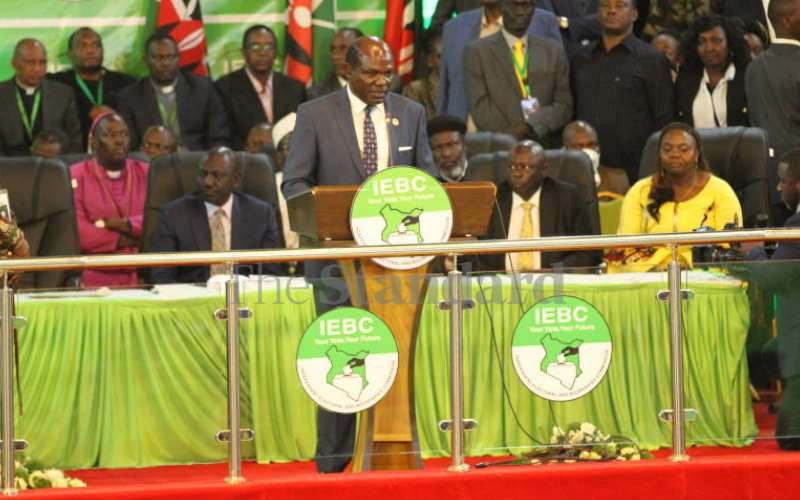×
The Standard e-Paper
Home To Bold Columnists

The soft spoken but firm man did not disappoint. Independent Electoral and Boundaries Commission (IEBC) Chairman Wafula Chebukati defied hours of stalemate, division and intimidation and made the declaration that millions had been awaiting since August 9 when they went to the polls.
Blows were exchanged in full glare of media cameras and four IEBC commissioners deserted him at Bomas of Kenya, Nairobi, and staged a parallel announcement at Serena Hotel, distancing themselves from the results the chairman was set to announce.